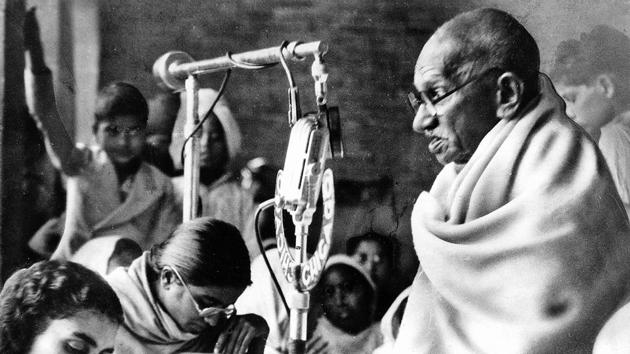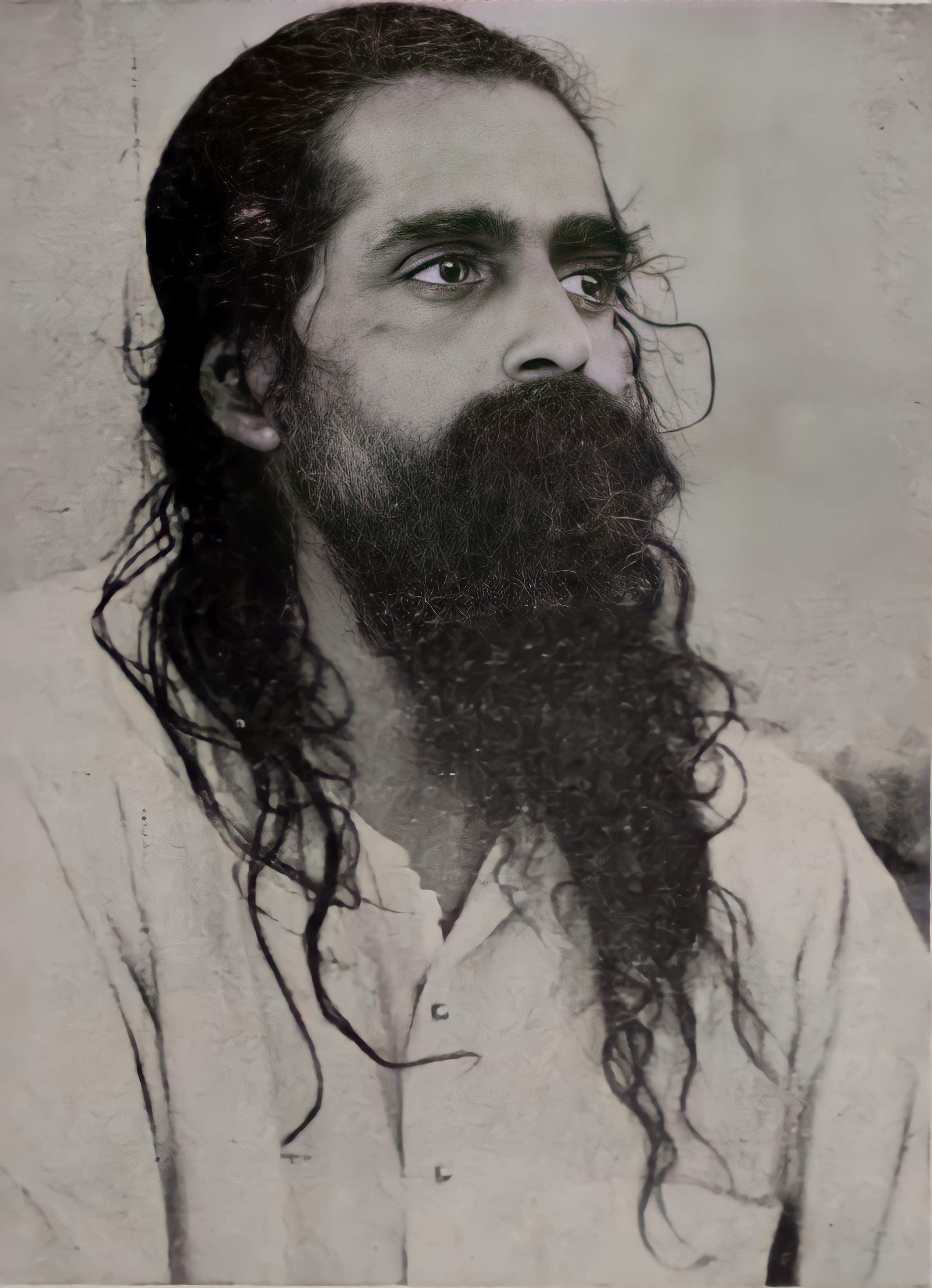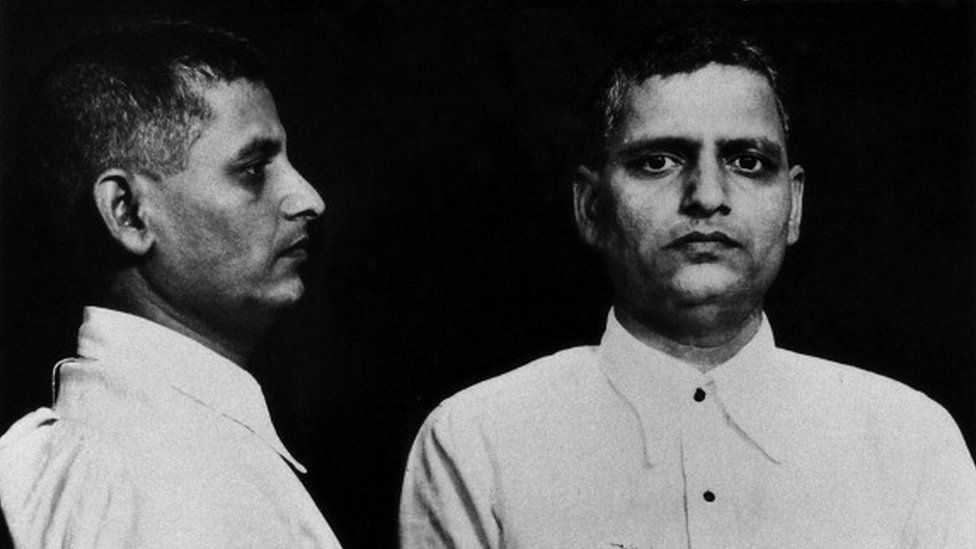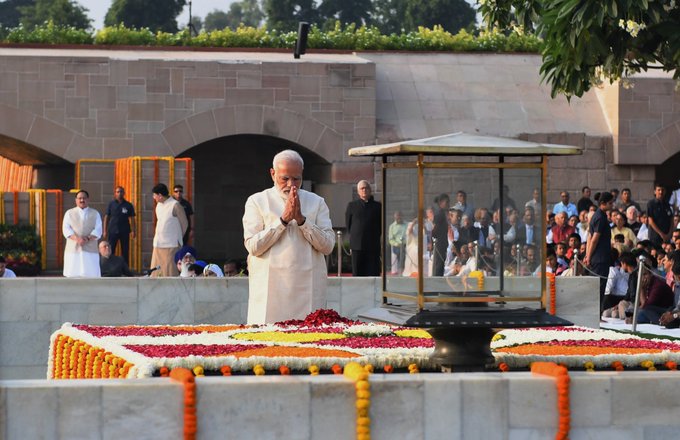[Last modified: April, 18 2022 02:57 PM]
Gandhi is an omnipresent feature of Indian life, visible on every banknote, street-sign, billboard, and office-wall. Yet as the violence of communalism fragments the nation, his vision of religious pluralism decays beyond recognition. It is pitiful that his idea of cleanliness is restricted to streets and infrastructure, when it equally includes the cleansing of hatred from people’s hearts.

Gandhi’s religious plurality is expressed as Sarva-Dharma Samabhava (equality of religions): “the soul of all religions is one, encased in a multitude of forms”. He envisioned ‘Ek Praja’, an inclusive India that embraced multi-religious, linguistic and ethnic diversities, explains historian Anthony Parel. Aimed at strengthening communal harmony to dismantle colonial rule, his politics reflected these core values. “Trust begets trust. Suspicion is foetid.” he said.

The religious ‘other’ became a source of friendship and mutual enrichment, as he strove to transform India’s inescapable diversity into its strength. The challenge lay in what historian Sumit Sarkar calls the ‘Gandhi Effect’: his fast-unto-death to end communal violence in Noakhali and Calcutta (1946) only prompted temporary abstinence from bloodshed, not a genuine change of heart. Gandhi alone could command such a response, so only fragile peace was spurred. Independent India has since then been fractured by communalism and religious bigotry, fuelled by power-hungry politicians and fundamentalists antithetical to Gandhi’s vision.
An Epoch of Fundamentalisms

Two critical events defined the religious fundamentalisms of independent India: the Kashmiri Pandit exodus and Babri Mosque demolition in the 1990s. As religious fundamentalism in Pakistan intensified, ethnic violence sparked the mass exodus of thousands of Kashmiri Pandits from the region. Mosque preachers condemned the ‘Indian terror’ in Kashmir, urging followers to join militant forces like the Lashkar-i-Toiba to liberate Kashmir from the ‘kafirs’ (non-believers).
Ayodhya’s Babri Mosque was demolished by self-proclaimed ‘Satyagrahi’ (truth-force) Hindu-mobs, who believed it stood atop a temple marking Lord Rama’s birthplace, and sought to reclaim it. Shivsena’s Balasaheb Thackeray proclaimed that this was a ‘retaliatory war’ to create a united Hindu State: “even the shadow of fanatical sinners (Muslims) will disappear from our soil.”

Hindu and Islamic fundamentalisms thus simultaneously legitimised one another. With every communal riot sparked by the Ayodhya-incident, Islamic radicals “condemned India as a Hindu-state” and engaged in retaliatory violence. With every killing of innocent Kashmiri Hindus, the “RSS blamed Pakistan for fomenting trouble within India”, suggests historian Ramachandra Guha. These events drastically polarised an increasing number of Indians along religious lines. Since then, India has witnessed hundreds of communal riots, notably In Gujarat (2002), Uttar Pradesh (2013) and Delhi (2020). In each instance, numerous innocents were killed as ruthless revenge for the acts of a few in action-reaction clashes, while political parties reaped electoral rewards from the violence.
Gandhian Hinduism vs Right-Wing Hindutva

Gandhi’s emphasis on Hindu-Muslim unity earned him enemies in right-wing militant groups like RSS and Hindu Mahasabha. “All non-Hindus are traitors and enemies to the national cause”, proclaimed RSS-head MS Golwalkar in 1939. Inspired by Nazism, he emphasised that cultural assimilation was impossible: “Germany’s lesson is one for us in Hindustan to learn and profit by.” Historicity upheld his myth of a perpetual struggle between Hindu victims and Muslim invaders: “We must wipe out all signs of our past slavery and see ourselves in pristine purity.”

Gandhi’s assassin, Nathuram Godse, likewise asserted that the Mahatma’s “consistent pandering to the Muslims” motivated his actions. Some Hindu fundamentalists even commemorate January 30th, Gandhi’s death-anniversary as ‘Bravery Day’, in memory of Godse’s ‘holy heroism’. BJP leaders like Pragya Singh have publicly deemed Godse a ‘patriot’ deserving temples in his honour. Despite being temporarily banned for complicity in his murder, the RSS incorporated Gandhi’s name in its ‘Pratah-Smaraneeya’ (Revered Leaders), a calculated move to gain moral currency in people’s eyes.
“India is the home of Muslims no less than of Hindus”, asserted Gandhi, bringing a ‘religious ethic’ into politics rather than a ‘political militancy’ to religious communities, as sociologist Rudolf Heredia suggests. Masquerading as patriotism, right-wing Hindutva is a militant political ideology that impoverishes the inherently inclusive Hindu faith.
Communalism in India Today
India is increasingly threatened by religious fundamentalism, discrimination, mob lynchings, and hate speech, worsened by the vehement silencing of journalists and protestors. Issues like rising cow-vigilantism, Love-Jihad conspiracies, and renaming of cities, have created an atmosphere of intolerance and distrust. While the previous Congress government was criticised for minority-appeasement and pseudo-secularism, the current BJP government is condemned for right-wing Hindu-nationalism.

BJP has revoked the limited autonomy granted to Kashmir, India’s only Muslim-majority state. In 2020, protestors rose against the Citizenship Amendment Act which specifically excluded Muslims from citizenship rights granted to refugees from Pakistan, Bangladesh and Afghanistan. Despite BJP’s claims that this policy ‘fulfilled Gandhi’s dream’, many poor Muslims without legal documentation, feared that it was aimed at their marginalisation. Historian Guha accused the BJP of “distorting and falsifying” Gandhi’s views on CAA; “Gandhi lived and died for communal harmony. This legislation makes Muslims vulnerable and insecure”.

Gandhi has increasingly become a cog in party-politics, invoked symbolically to advance electoral politics. In a strategic political move after two successive Lok Sabha defeats, Congress leader Sonia Gandhi took an oath to “redeem Gandhi, Gandhism and Gandhi’s India”. Likewise, BJP’s PM Modi wrote about “spreading Gandhi’s ideas to free the world from hate, violence and suffering” on the 89th anniversary of Gandhi’s Dandi march, criticising Congress-culture as the “antithesis of Gandhian thought”. ‘Owning’ Gandhi has become central to being viewed as the political party that defines the idea of India. He is constantly eulogised in government rallies, yet his foundational ideologies fail to manifest.
———-

Gandhi’s collective memory still matters in India. While his principles appear idealistic, they are increasingly relevant as the weaponization of religion threatens Indian secularism and democracy. They continually fight for survival through resistance against religious fundamentalism, violence and discrimination. Remember, it is not just Godse who killed Gandhi, but every single Indian who has engaged in such hate-politics. Even as Gandhi’s statue stands tall outside the Indian Parliament, his many deaths are more pronounced than ever.